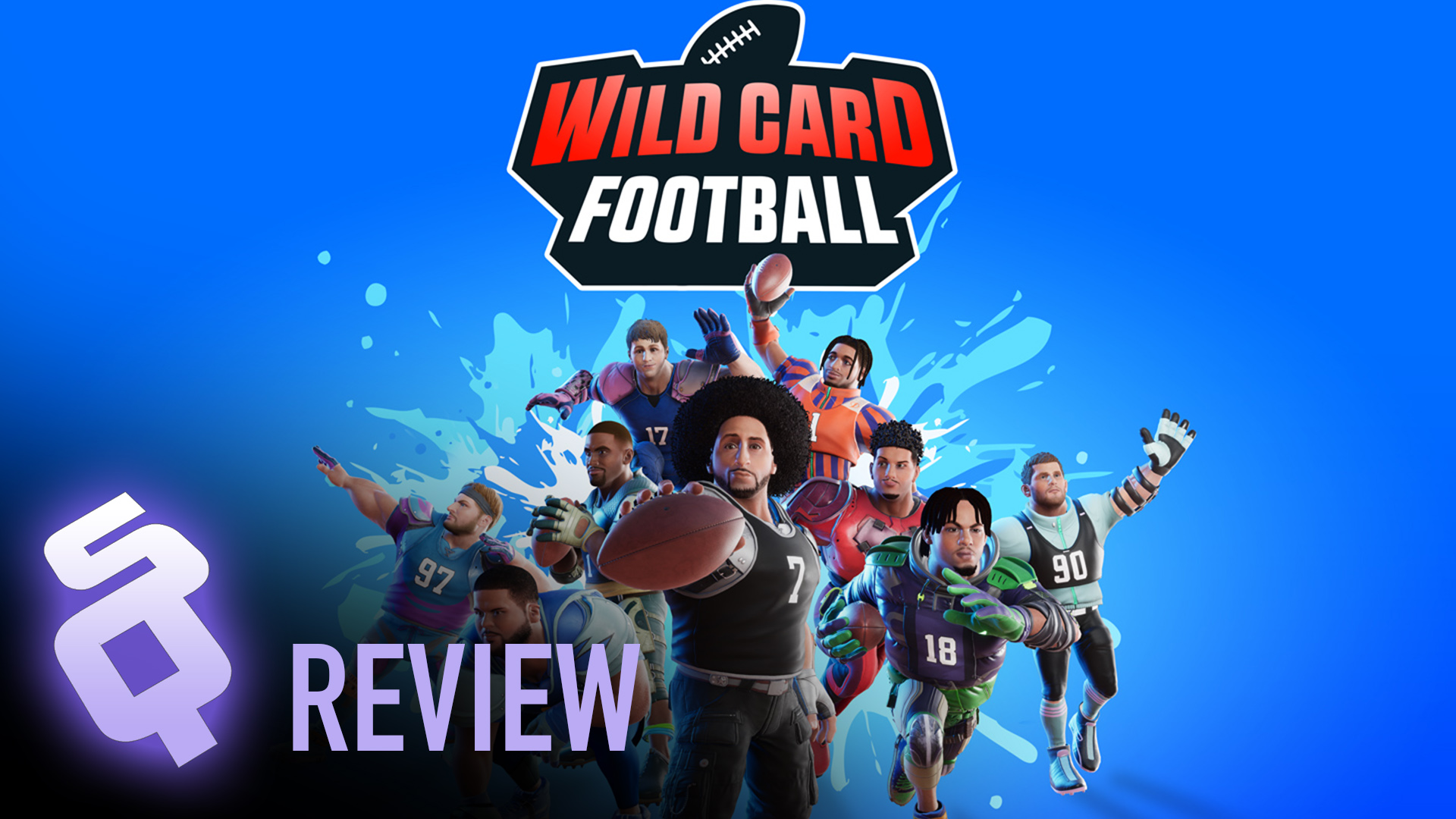Solid arcade gridiron with a fun gameplay twist (and juke)
There used to be A LOT of console football games available. Over the last couple of decades that number dwindled down to just a handful, and apart from Madden none of them really succeeded in giving us what we wanted: fun play, and real players. Saber Interactive’s Wild Card Football may automatically be on our radar because there isn’t much available in the American football space on consoles, but it also succeeds in giving us both the latter and the former of what we’ve been looking forward to.
Like some of its arcade forebears, the game is played with two teams of 7 players on a variety of fields, from NFL-style stadiums to industrial parks and yards. It doesn’t have the NFL license but it DOES incorporate the NFLPA, meaning that while my Lions aren’t technically in the game, “Team Goff” is, and so are several of the players associated with the Detroit team. In fact, that’s one of the key selling features of the game; there are a lot of players. Like, A LOT.
The game has two main modes, an NFL replacement season and an online league. The season uses existing, prebuilt teams of NFL players, so that if you want to play as J.J.’s loving Seahawks (I’m still salty about the second game of the actual NFL season) then you’ll have all of those players but without the Seahawks name, organized into their respective teams. In the online Dream Squad mode players can obtain and open card packs that contain a collection of all of the athletes, with both current and legends in the mix. Colin Kaepernick is the associated cover athlete for the game, and I got him in my fifth or sixth pull, immediately pairing him with Amon-Ra St Brown and Travis Kelce on my “Detroit City Lions.” It’s great to collect the players and build up a super team, but that’s really only available in this mode — kind of dividing the game into two different experiences.
But, that’s where the Wild Cards actually come in. The game’s namesake speaks to the card-based modifiers that players can use. Each team has a deck full of cards, which modify the abilities of individual players, lines, full teams, or even the entire playfield. Depending on the draw, I can make just my runningback faster for one play, or I can slow down the opposing team’s cornerbacks if I think I’m going to opt for a pass. Or, I can litter the field with mud traps that make everyone slog down if they inadvertently run into one. Or I can drop pinball bumpers onto the play area. Or call up a UFO. It’s a lot of fun to incorporate these into our plays, because it adds not only a whole new layer of playcalling and preparation but also some nice chaos.
How does the game play? That’s the most important question, and thankfully the answer is a surprising “very solid.” I say that because typically arcade sports games opt for a much looser style of mechanic; Wild Card Football is much more responsive to our controls, with jumps, jukes, and runs feeling intuitive without being overly simulation based. It’s not perfect though, as some of the canned animations can lead to inadvertent plays. It’s also funny (or a bug?) when the game’s in-game mini cinematics don’t line up with the actual play on the field, like when my quarterback gets sacked for a safety but then stands up and celebrates because he got points (for the wrong team).
Wild Card Football isn’t the most stacked sports experience — there aren’t storylines or player wage balances or massive cinematics — but it succeeds in being fun (especially in multiplayer) and having a lot of the players that we want to use.
This review is based on Steam and Switch codes sent to SideQuesting by the publisher. I originally appeared on the October 10th, 2023 episode of The SideQuest.



No Comments